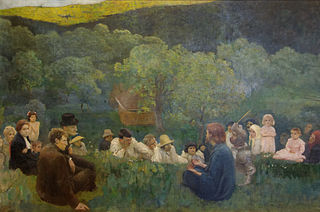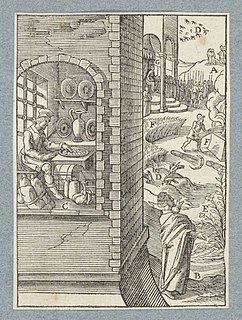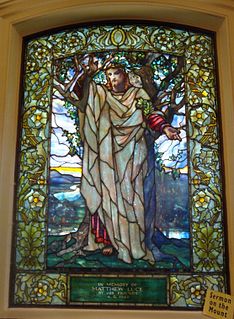Glossa Ordinaria: Having thus expressly cut off all anxiety concerning food and raiment, by an argument drawn from observation of the inferior creation, He follows it up by a further prohibition; Be not ye therefore careful, saying, What shall we eat, what shall we drink, or wherewithal shall we be clothed?
Saint Remigius: The Lord repeated this, that He might show how highly necessary this precept is, and that He might inculcate it more strongly on our hearts.
Rabanus Maurus: It should be observed that He does not say, Do not ye seek, or be thoughful for, food, drink, and raiment, but what ye shall eat, what ye shall drink, or wherewithal ye shall be clothed. Wherein they seem to me to be convicted, who, using themselves the usual food and clothing, require of those with whom they live either greater sumptuousness, or greater austerity in both.
Glossa Ordinaria: There is also a further needless solicitude wherein men sin, when they lay by of produce or money more than necessity requires, and leaving spiritual things, are intent on these things, as though despairing of the goodness of God; this is what is forbidden; for after all these things do the Gentiles seek.
Pseudo-Chrysostom: Since their belief is that it is Fortune and not Providence that has place in human affairs, and think not that their lives are directed by God’s counsel, but follow the uncertain chance, they accordingly fear and despair, as having none to guide them. But he who believes that he is guided by God’s counsel, entrusts his provision of food to God’s hand; as it follows, for your Father knoweth that ye have need of these things.
Chrysostom: He said not ‘God knoweth,’ but, Your Father knoweth, in order to lead them to higher hope; for if He be their Father, He will not endure to forget his children, since not even human fathers could do so. He says, That ye have need of all these things, in order that for that very reason, because they are necessary, ye may the more lay aside all anxiety. For he who denies his son bare necessaries, after what fashion is he a father? But for superfluities they have no right to look with the like confidence.
Augustine: God did not gain this knowledge at any certain time, but before all time, without beginning of knowledge, foreknew that the things of the world would be, and among others, both what and when we should ask of Him.
Augustine: As to what some say that these things are so many that they cannot be compassed by the knowledge of God; they ought with like reason to maintain further that God cannot know all numbers which are certainly infinite. But infinity of number is not beyond the compass of His understanding, who is Himself infinite. Therefore if whatever is compassed by knowledge, is bounded by the compass of him that has the knowledge, then is all infinity in a certain unspeakable way bounded by God, because it is not incomprehensible by His knowledge.












